Last week CNN Travel profiled Taiwan’s new gourmet dining train called the “Moving Kitchen.” Sparked by an open letter from a Taipei-based architect, it features a bar, a kitchen and two new dining cars with seats for 54, according to CNN. With 33 business class seats, travel booking by Lion Travel and food provided by the Silks Hotel group, this large outlay of public monies is obviously aimed at a miniscule class of affluent travelers. This follows a pattern common to public programs the world over, in which public investments are aimed at luxury consumers, rather than those of us who use the system daily and need a wider range of services.
My thought was, when I saw it, was simple: “got space for useless gourmet train, but none for bikes.”
If you read the Taiwan Railways Administration (TRA) Web site on bikes, it says all sorts of things, in lame and confusing “we have funding for gourmet train but not for professional translation and editing services” English. I am sure readers will quickly grasp the meaning of sentences like “People and passengers: bicycles can be brought to the train and the same passengers as the passengers.”
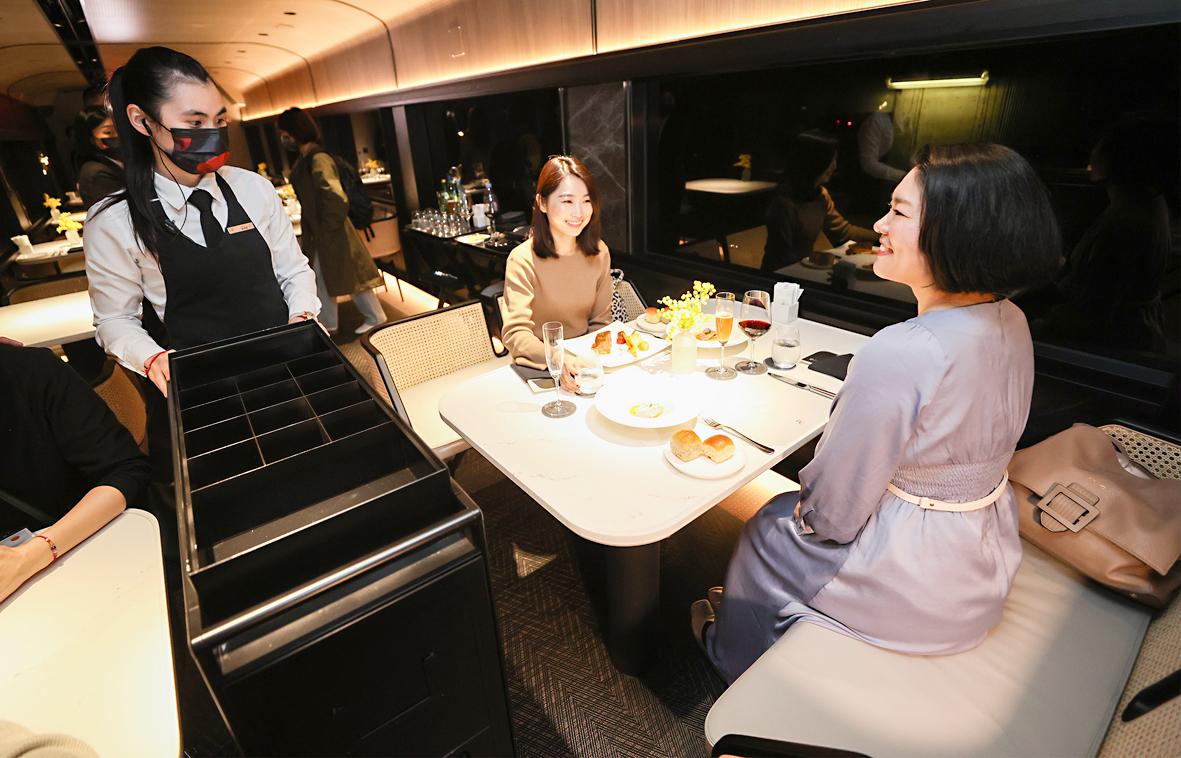
Photo: CNA
It’s not often I have to employ a translator to read English.
The regulations themselves are complicated, specifying in great detail, this or that train, costs and so forth. So bad are they that a number of helpful English language sites have arisen to explain them, like rabbis making the Mishnah clear to ordinary people.
REDUCED SERVICES
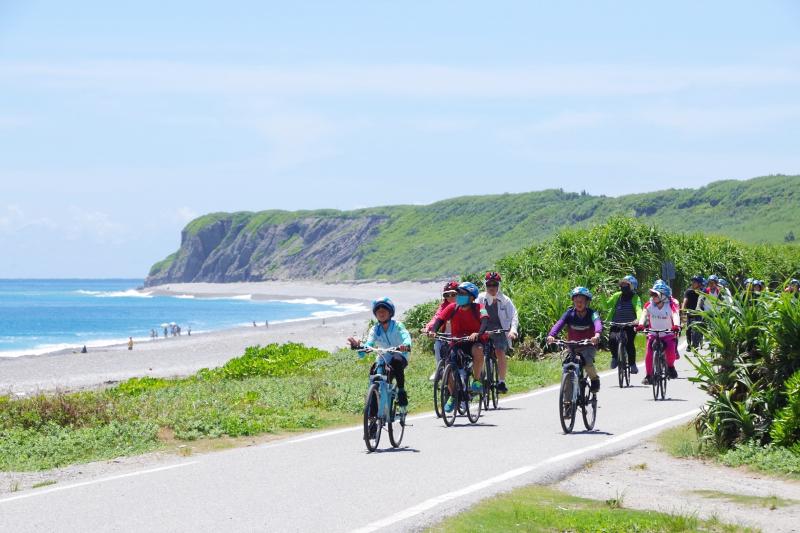
Photo courtesy of the Hualien City Government
Although the TRA advertises itself as bicycle-friendly, and other government Web sites refer to it that way, in recent years its services for bikes have actually been reduced. It used to be that certain express trains had a final car designated for bikes, with clips so you could simply roll bikes on. Why was this useful service terminated?
The TRA has also killed its wonderful bike shipping service, which you could use to ship your bikes to many stations around the country. I used it hundreds of times.
As is so often the case, “improvements” also led to declines in service. The elevated rail lines in Taichung meant that the old bike shipping service was no longer offered from the stations in that city and goods had to be schlepped to either Fongyuan District (豐原) or Changhua (the elevated lines also lengthened the time passengers needed to board a train, but things were better for car drivers who were not using the train. Priorities!).
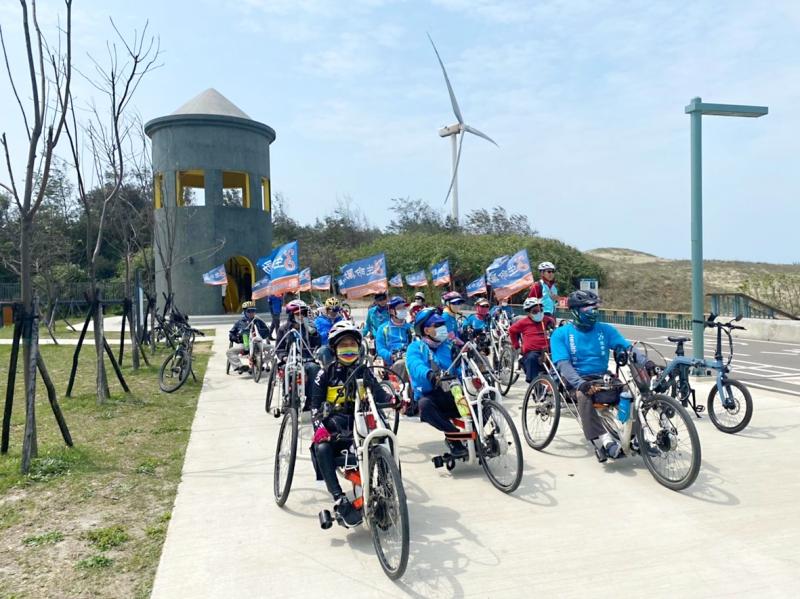
Photo: Hong Mei-hsiu
For commentary on TRA’s bike-friendliness, I turned to my friend (and occasional Taipei Times contributor) Mark Roche, who is well known in the foreign cycling community, and who used to operate a small bike tour company in the antiquarian age before COVID-19. Roche has been active in trying to get TRA to change its policies.
Last year Roche detailed some of the problems we cyclists regularly encounter on TRA trains in a letter to the company. He pointed out that if he brings his heavy touring bike to a station, he is never permitted to wheel it onto the platform and bag it there. He has been told that is unsafe.
However, if he is riding a local and buys a ticket for his bike, he can easily wheel the bike onto the platform. “It seems,” he observed, “the only thing TRA is concerned about is whether I am paying extra money for the bike and [the] regulation has nothing to do with safety.”
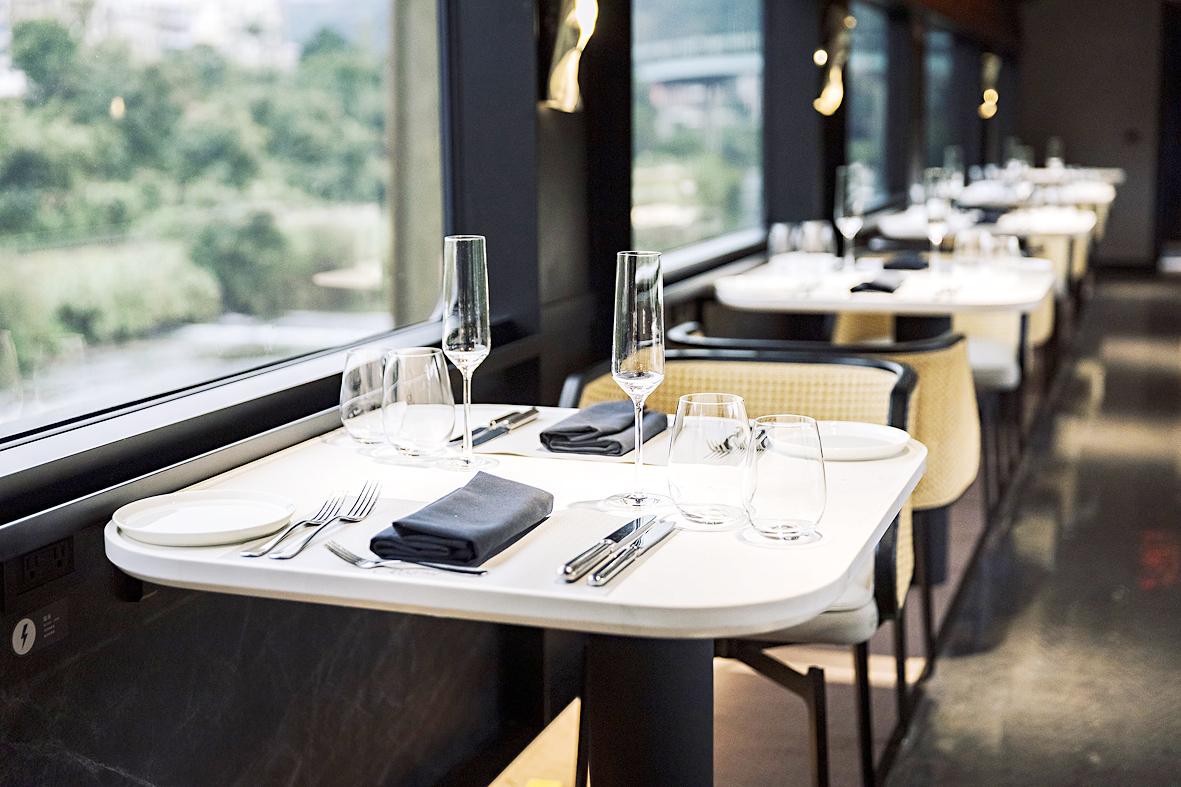
Photo: Wang Shan-yan, Taipei Times
I have never been permitted to bag or unbag my bike on the platform, meaning that I have to carry it through the station, occasionally bashing people or objects or once, tumbling down stairs when I overbalanced with a heavy bike. It would be much safer if all cyclists could wheel their bikes to the platform and bag/unbag them there — indeed many stations have stairs equipped for that — not just those who have purchased a ticket for a local.
“When I go to any train station and tell the staff at the ticket counter that I am taking a bike on the train,” he continues, “I ask them which car has larger luggage space or somewhere to put my bike, but they never know the answer to this question. Usually, they just tell me to go find space myself. This is a terrible service.”
As an avid cyclist, I have had this experience many times myself. Staff are confused about or even ignorant of the rules. Downstairs you buy a ticket and are told it’s no problem to put a bike on the train. Upstairs at the platform gate the TRA employee tells you that you cannot put that bike on the train.
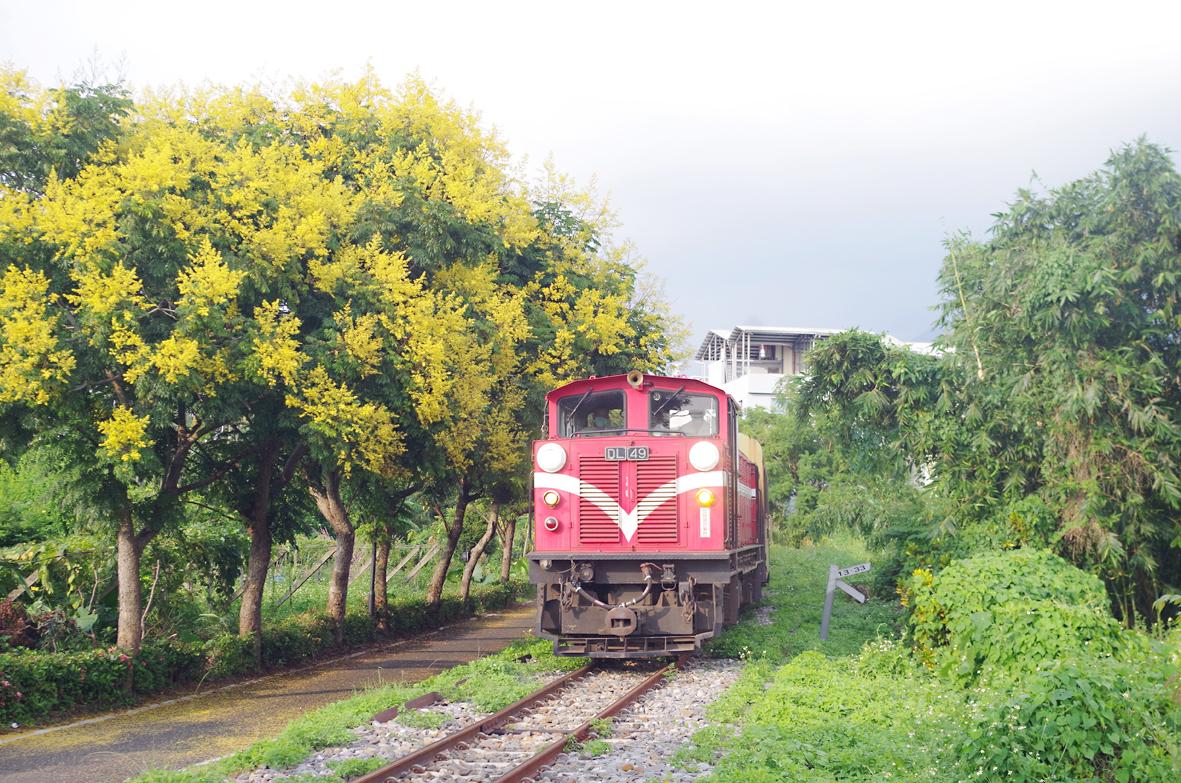
Photo: Wang Shan-yan, Taipei Times
This caprice means that every time I try to put a bike on a train, I find myself steeling for a confrontation. Yet this caprice also means that conductors often wink at regulations. My bike and I have had many wonderful experiences with humane and generous TRA staff. My thanks to you all.
I told Roche that now when I want to put a bike on the express train, I purchase two express tickets, one for me and one for the bike. I set the bike up in the seat next to me. So far I have not been challenged when doing that. It’s a suboptimal solution for all concerned, but at least it works.
He replied: “I refuse to do that. It’s the principle of the thing. I should be able to buy a half fare ticket and roll the bike onto any train.”
This is one of his recommendations to the TRA.
“Always charge for the bike,” he suggests. “Most people would prefer not to take their bike apart and put it in a bag. They are afraid of an expensive bike getting damaged. Half adult fare for a bike is not expensive and I think most people would accept this charge if they know their bike will be in a safe place.”
That is exactly why I purchase a seat for my bike. Roche also called on the TRA to ensure that every train – not just designated trains – has 1-2 spaces for bikes.
Ironically, Roche wrote that letter last year, the Year of the Bicycle here in Taiwan.
LIBERALIZE BIKE POLICIES
The TRA needs to liberalize its bike policies. Sometime this year Taiwan will likely re-open to tourism. Our nation is already well known for its cycling, and the TRA needs to get onboard with making things easy and comfortable for cyclists from overseas who want to use its services without hassles, misunderstandings and angry confrontations.
The other reason TRA needs to rethink its restrictive bike policies is to support city planning for car-free downtowns. Around the world numerous cities have designated car-free areas or have gone entirely car-free. Indeed, Jason Hu (胡志強), the former Chinese Nationalist Party (KMT) mayor of Taichung, was contemplating such a move for downtown Taichung before he was ousted from office. Local governments dependent on tourism, such as Miaoli and Taitung counties, should also be pushing the TRA to simplify and expand its bike services.
Imagine it: TRA change could help drive change that would make Taiwanese cities more livable and environmentally friendly.
And users happier. Win-win, for sure.
Notes from Central Taiwan is a column written by long-term resident Michael Turton, who provides incisive commentary informed by three decades of living in and writing about his adoptive country. The views expressed here are his own.

This month the government ordered a one-year block of Xiaohongshu (小紅書) or Rednote, a Chinese social media platform with more than 3 million users in Taiwan. The government pointed to widespread fraud activity on the platform, along with cybersecurity failures. Officials said that they had reached out to the company and asked it to change. However, they received no response. The pro-China parties, the Chinese Nationalist Party (KMT) and Taiwan People’s Party (TPP), immediately swung into action, denouncing the ban as an attack on free speech. This “free speech” claim was then echoed by the People’s Republic of China (PRC),

Exceptions to the rule are sometimes revealing. For a brief few years, there was an emerging ideological split between the Democratic Progressive Party (DPP) and Chinese Nationalist Party (KMT) that appeared to be pushing the DPP in a direction that would be considered more liberal, and the KMT more conservative. In the previous column, “The KMT-DPP’s bureaucrat-led developmental state” (Dec. 11, page 12), we examined how Taiwan’s democratic system developed, and how both the two main parties largely accepted a similar consensus on how Taiwan should be run domestically and did not split along the left-right lines more familiar in

As I finally slid into the warm embrace of the hot, clifftop pool, it was a serene moment of reflection. The sound of the river reflected off the cave walls, the white of our camping lights reflected off the dark, shimmering surface of the water, and I reflected on how fortunate I was to be here. After all, the beautiful walk through narrow canyons that had brought us here had been inaccessible for five years — and will be again soon. The day had started at the Huisun Forest Area (惠蓀林場), at the end of Nantou County Route 80, north and east

Specialty sandwiches loaded with the contents of an entire charcuterie board, overflowing with sauces, creams and all manner of creative add-ons, is perhaps one of the biggest global food trends of this year. From London to New York, lines form down the block for mortadella, burrata, pistachio and more stuffed between slices of fresh sourdough, rye or focaccia. To try the trend in Taipei, Munchies Mafia is for sure the spot — could this be the best sandwich in town? Carlos from Spain and Sergio from Mexico opened this spot just seven months ago. The two met working in the